hr television, 10.00 a.m.
The film presents wineries and their vinotheques with special architecture. Some of the vinotheques are new creations, others refer to traditions or existing buildings. The Kreutzenberger winery in Kindenheim was built in the Bauhaus style as early as the 1920s. The Pauly family winery in Lieser was completely rebuilt in a modern style after a fire. The two-storey vinotheque of the Regnery winery in Klüsserath is covered with a "curtain" of 16-metre-long oak beams. At the Emmerich-Koebernik winery in Waldböckelheim, tradition and modernity go hand in hand, and the eye-catcher in the vinotheque at the Poss winery in Windesheim is a floating counter. At the listed Neus winery in Ingelheim, conversion and renovation measures are only possible under strict conditions, and in the "PAR-TERRE" vinotheque in Landau, designer Michael Michalsky has reinvented wine tasting.
3sat, 11.00 a.m.
Georgia is nestled between the Black Sea and the Caspian Sea, between the Greater and Lesser Caucasus. The film portrays the everyday life of the people living there. In Kakheti, wine is still pressed in huge clay pots called kvevris. Everywhere, Georgians demonstrate their hospitality, cooking skills and drinking habits. In Georgia, people don't ask, "How are you?" but, "How are your vines?" In Kakheti, eastern Georgia, each family owns a vineyard and makes its own wine to share. It is said that in this country at the foot of the Caucasus, viticulture began more than 6,000 years ago. Even in ancient times, grape juice was pressed in the region and put into so-called qvevris, which were buried in the ground for fermentation.
Swiss Television, SRF 2, 7.10 p.m.
Star chef Jamie Oliver accompanies a Sardinian winegrowing family at work.
ANIXE, 0.15 hrs (in the night from Thursday to Friday)
Deep in the west of France, one of the most traditional wine cultures in the world is cultivated. Wine and the pleasure associated with it are emblematic of this city on the Garonne. Whether in fashion, perfume, food or even wine, the French make everything avant-garde. You don't walk here, you stroll. They have an exemplary understanding of the art of living, and wine is the elixir.
Phoenix, 6.45 a.m.
On the gentle hills of the Argentine province of Mendoza, millions of grapevines reach for the sky. Centuries ago, the Incas established irrigation systems here to transport the meltwater from the mountains down into the valley. Phylloxera ravaged Europe in the second half of the 19th century, destroying almost all vineyards in France. Some of the ancient grape varieties, including Carmenère, were wiped out in the process. It was only a few years ago that a biologist proved that this grape had survived in Chile, of all places, where Catholic monks had brought it from Europe. Today, Chile practically has a world monopoly on Carmenère and exports especially much to - France!
SWR Television, 11.45 a.m.
Georg Plattner, makes a friendly approach to Paul, promises him support - not without ulterior motives in keeping with his character. Johanna, Thomas Stickler's divorced wife, offers Thomas her help and works in the business. She gets to know the wine merchant Strasser and they become closer.
ARD-alpha, 12.30 p.m.
Myths at University: Aerospace, Sociology and Viticulture Studies
hr television, 4.00 p.m.
Even when the last work in the vineyard is done in December, the Rheingau is not in hibernation. This is when people celebrate and enjoy themselves behind the walls of villas, monasteries and castles, and in a particularly refined way. In the candlelit ballroom of Vollrads Castle, film author Nina Thomas shows dishes from the Greiffenclau family's old menu cards. In a sparkling wine cellar in Geisenheim, an entire menu is cooked to Rheigau sparkling wines. In Eberbach Monastery, there's something hearty in the tavern and lots of nibbles at the opening of the Rheingau Gourmet Festival. The festival itself takes place at the Kronenschlösschen in Hattenheim: Anton Mosimann, the chef of William and Kate's wedding menus, will cook a gala dinner there.
SWR Television (RP), 6.15 p.m.
Sometimes it all seems like a dream to her. Juliane Eller from Alsheim is something of a shooting star among German female winemakers. At just 23 years old, she took over her parents' vineyard and, despite the financial risks, radically restructured the business. That was six years ago. Since then, a new wind has been blowing at the winery - quality instead of quantity. The winemaker's daughter relies on organic farming and manual harvesting. But nothing works without the family. Juliane is glad that her parents, Thomas and Ingrid, are still involved in the work. And grandma Katharina takes care of the physical well-being on the winery. For her wine marketing, Juliane Eller used social media from the very beginning; after all, she belongs to the Instagram generation. She also wants to get younger people excited about German quality wine. Why not work with real celebrities for this? The young winemaker from Rheinhessen managed to get presenter Joko Winterscheidt on board and he convinced his friend, actor Matthias Schweighöfer, to join in. Today, the three successfully market their joint "3Freunde wine". But success has its price. Besides working in the vineyard, Juliane Eller is now constantly on the road, sometimes too much. Despite the support of her family, there is little time left for her private life. That is why Juliane and her father Thomas have been looking for competent reinforcement for quite some time. An employee for the outdoor area who fits in and shares their philosophy. But that is easier said than done.
Bavarian Television, 2.25 p.m.
The hilly region of Sausal is located in southern Styria. Besides fruit and chestnuts, pumpkins are grown here, from which the popular Styrian kernel oil is made. The area is also known for excellent white wines. Many wineries serve it in their Buschenschanken. One of them is the Kitzeckmüller winery. Here Susanne Wiesner has arranged to meet the formation Summa summarum-steirisch, the Lenzbleamal and the group Fliederstaud'n.
ZDF, 5.55 p.m.
Colourful lights everywhere, the smell of roasted almonds in the air, hot mulled wine steaming in the cup. But Corona changes everything - visitors have to wear a mask to the Christmas market. One thing is already certain: the Christmas market with dense crowds and cosy communal drinking of mulled wine will not exist in 2020. In the few cities that host markets, it's a one-way street and distance to the mulled wine zone. There are around 2500 Christmas markets in Germany, usually. Before Corona, they attracted about 160 million visitors from Germany and abroad to the decorated city centres. An important economic factor for hotels, restaurants and showmen. But many Christmas markets have now been cancelled altogether. The stall operators had hoped to compensate for the losses of the Corona year with the Advent business. Some of them generate a third of their annual turnover in the Christmas weeks. The "Dortmund Christmas City" is to take place - albeit in a different way than usual. The Arens family of showmen breathes a sigh of relief. They have been present at the Dortmund Christmas market for three generations and can look back on a tradition of over 150 years. Grandmother Heidi is a true veteran with her grilled ham stand. Her granddaughter Alicia is the one who finds the situation most difficult. As a single mother, she has to support herself and her six-year-old daughter with the income from the Christmas market. Worried about falling into the red with her own shepherd's bread stall, she will help out at her father Patrick's mulled wine stall in 2020. Patrick Arens has been running this stall for 18 years. He hopes that this year at least his regulars can be relied on. Gingerbread, twinkling lights and an encounter with the Christ Child - Nuremberg hosts what is probably the most famous Christmas market in Germany, even if the Christ Child can only speak to visitors virtually this year. The idea here: The stalls are spread across the city, the market takes place on four squares at once. There is also a one-way street system to prevent the usual crowds. Market manager Christine Beeck is curious to see whether the concept will work and, above all, how it will be received by the Christkindlesmarkt fans. ZDF.reportage" accompanies people in front of and behind the counter. Some are fighting for their economic survival, others want to celebrate Advent with mulled wine, bratwurst and masks.
ZDFinfo, 1.30 p.m.
Fake honey, adulterated olive oil or falsely labelled wine - everywhere in Europe, including Germany, fake food is traded and sold. Even wine or olive oil in a bottle can be from different producers from different countries. The more it is mixed, the more likely it is to be counterfeit. And the longer and more opaque the supply chains are, the easier it is for counterfeiters to cover their tracks.
arte, 6.30 p.m.
For Christian Müller-Schick, oak wood from the Palatinate Forest is the most important raw material. He is the only stave carver in Germany and uses it to make longitudinal timbers that are used to build barrels. One of the winegrowers who prefer to mature their wine in Palatinate oak is Frank John. He practices biodynamic viticulture and is a pioneer of near-natural farming in the Palatinate. His wines are among the best in Germany. One reason for this is the special climate on the edge of the Palatinate Forest.
ARD-alpha, 8.15 p.m.
The whole world is talking about climate change: melting polar ice caps, rising sea levels, droughts and hunger in the world. But how does climate change affect the south-west of Germany? On animals and plants, on the landscape - and on people? Who will benefit and who will be the losers? The whole world is talking about climate change: melting polar ice caps, rising sea levels, droughts and hunger in the world. But how does climate change affect southwest Germany? On animals and plants, on the landscape - and on people? Who will benefit and who will be the losers? Axel Wagner, SWR reporter and biologist, goes on a climate tour through the southwest - to the places where climate change is already noticeable or will soon show its effects. He visits the winegrowers in the Palatinate, the fruit growers at Lake Constance and the ski lift operators in the Black Forest who are already affected by climate change. He asks whether flash floods like the one in the Hunsrück town of Stromberg in the future will become more frequent and blazing hot summers in our cities the rule. The documentary shows what needs to be done to prepare for the consequences of climate change.
Bavarian Television, 8.15 p.m.
"Wine is my great love," says Nicole. Even as a young girl, she decided to turn her passion into a profession. Five years ago, the 46-year-old winemaker took over the management of the family winery in Wiesenbronn on the edge of the Steigerwald. Her father was one of the first in Germany to convert to organic viticulture back in 1974. He still works full time and passes on his knowledge to Nicole. Nicole is not only responsible for the winery, she is also the single mother of her eleven-year-old daughter Frida.
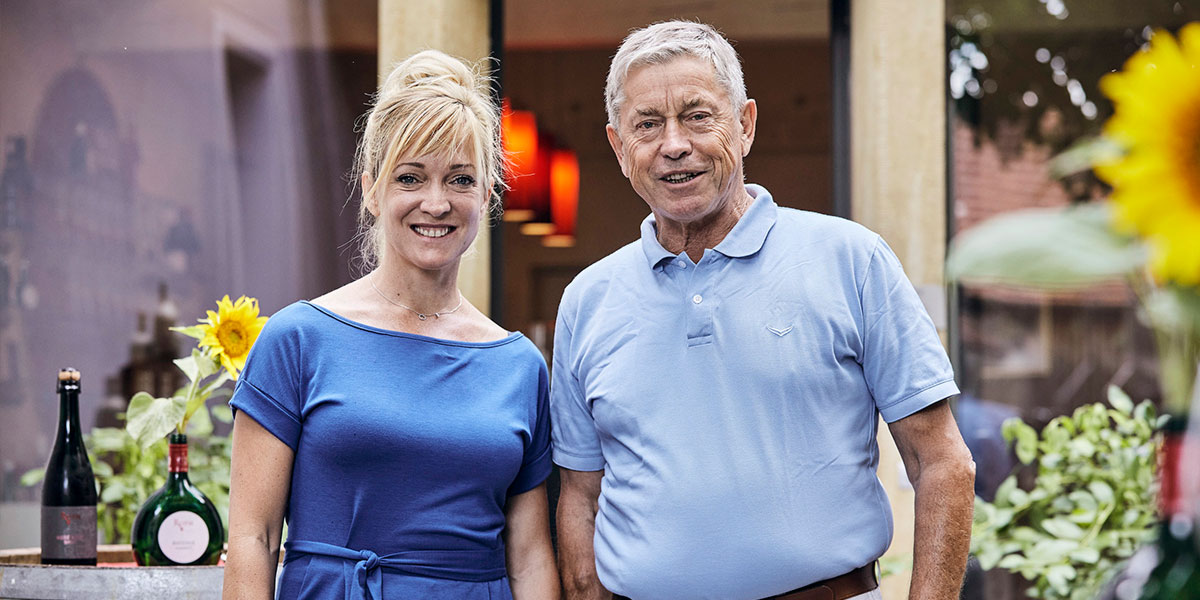 |
hr television, 9.15 a.m.
Even when the last work in the vineyards is done in December, the Rheingau is not in hibernation. This is when people celebrate and enjoy themselves behind the walls of villas, monasteries and castles, and in a particularly refined way. In the candlelit ballroom of Schloss Vollrads, film author Nina Thomas shows dishes from the Greiffenclau family's old menu cards. There she also experiences the ice wine harvest in the middle of the night in freezing cold. In a sparkling wine cellar in Geisenheim, an entire menu is cooked to Rheigau sparkling wines. In Eberbach Monastery, there's something hearty in the tavern and lots of delicious nibbles at the opening of the Rheingau Gourmet Festival. The festival itself takes place at the Kronenschlösschen in Hattenheim: Anton Mosimann, the chef of William and Kate's wedding menus, will be cooking a gala dinner there.
SWR Television, 5.30 a.m.
Alsace is a special region in the heart of Europe, where there are still true natural treasures in great diversity. Between the Rhine and the Vosges, warm valleys meet cool mountainous regions. Here, in the midst of a cultural landscape dominated by viticulture, very different habitats lie close together.
ARD-alpha, 8.15 p.m.
The most beautiful country on earth lies to the very east of Europe: Georgia. At least that's what the Georgians say about their homeland. Just an assertion for now, Julia Finkernagel thinks, and sets off eastwards with her backpack for the fourth time. On her adventurous journey, Julia receives support from two genuine Georgians. Together they scour the small hospitable country from the Black Sea coast to the Great Caucasus. Experiencing Georgian hospitality is quite simple: you walk slowly past a fence, make eye contact with the resident behind it and you are invited to come in! Julia and her Georgian travel companion Gia end up with 74-year-old Shura, who lures them into the house and then opens a mysterious flap in the floor of the kitchen. A ladder leads down into a gloomy dungeon that turns out to be a wine depot - tasting included!
SWR Television, 0.45 a.m. (in the night from Thursday to Friday)
The "Kings of Kallstadt" tell the story of leaving and coming back, of village love and delusions of grandeur. And it always revolves around the question "Can it be a coincidence that the ancestors of US President Donald Trump and the Heinz tomato ketchup dynasty come from the same Palatinate village?" More precisely: from the village of Kallstadt with 1,200 inhabitants. The author Simone Wendel also comes from there. She has set out on a cinematic search for clues. It begins - fortified, of course, by Palatinate wine and Saumagen - with all kinds of special features of her home village. In a nutshell: "We prefer to do everything together and help each other where we can". The author can proudly say that her Palatinate compatriots have a "135 percent love of clubs". To have a grip, to have plans and to hit the ground running - this is how the people from Kallstadt interpret the characteristics of their successful relatives in the USA from afar. Those with such genes also manage to get an interview with Donald Trump on the 26th floor of Trump Tower in New York. Armed with cake and wine, as one does when visiting family, SWR author Simone Wendel actually opens the doors and the heart of her interview partner. The real estate giant is really moved by the picture of the Kallstadt cottage from which his grandfather came. The big surprise and the biggest adventure of the film: the trip of the Kallstadters to the Steuben Parade in New York. This takes place at the worst possible time for the Palatinate winegrowers - in the middle of the grape harvest. But with their talent for improvisation, they master the German defilee on Fifth Avenue - with a wine princess, a Saumagen filled with balloons and Bacchus, the god of wine, who serves real wine, although that is actually forbidden here. John Trump, a cousin of Donald Trump, who has never denied or lost his Palatinate roots, walks in front. If that's not a family reunion.
SWR Television, 8.15 p.m.
Esslingen am Neckar - a town with ancient roots and lively life within historic walls. It is just the right place for a modern treasure hunt. SWR presenter Annette Krause uses a GPS device to track down history and stories, descends into cellars and crypts and proves her courage in the dizzy heights of the towers of St. Dionys, Esslingen's impressive town church. She discovers from the Young Winemaker of the Year 2020, Max Kusterer, that wine and the steep slopes were and are an important treasure of the city.
ORF 2, 4.30 p.m.
For some years now there has been a heated discussion in South Tyrol about the use of pesticides in agriculture. The village of Mals even held a referendum. The majority of the population voted for a "glyphosate-free community". Since then, people have been talking about the "Miracle of Mals". The whole thing mainly concerns monocultural fruit growing, which stretches from the upper Vinschgau to Verona. In the shadow of these debates, some winegrowers - and there are more every year - have gently and quietly abandoned pesticides. This applies both to large farms, such as Lageder or Manincor, which enjoy a worldwide reputation, and to many smaller winegrowers. For some of them, the vinification methods go much further than the usual organic guidelines. Vinification in amphorae or in special wooden barrels are just a few examples. We are talking about natural wines here, which have a large following throughout Europe - especially in Austria, Slovenia, Croatia, Italy and France. South Tyrol could soon take on a pioneering role, not least because these wines fetch a much higher sales price. Hartwig Mumelter's documentary features a total of six South Tyrolean wineries that pursue the same goal but have taken a completely different path. The winegrowers were accompanied through the annual cycle of their work, which is much more elaborate in the vineyard as well as in the cellar than in conventional viticulture.
3sat, 11.45 a.m.
"At Table in..." this time takes us to Provence to Rose-Marie, who invites all the residents of her former winery to a pre-Christmas celebration and classic lasagne soup. For 25 years, Rose-Marie Bernard rented out rooms to holiday guests on her old Provençal vineyard. Then she didn't feel like it any more, but she didn't want to be alone either. So she divided the farm into five flats and sold four of them to young people from the area. She now celebrates Christmas twice, once with her family and once with her new house community. Manuel Bernard, Rose-Marie's son, brings his three children and his own wine. Manuel is a winemaker at the "La Martine" vineyard. The Christmas season is anything but tranquil for him. Because around Christmas he prunes the vines and prepares the young wine in the fermentation tanks for the cuvée. It is this bringing together of different varieties that ultimately produces a harmonious Côte du Rhône.
arte, 13.00
Set amid vineyards, the town of Epernay is famous the world over for the great champagne producers who are based here. The monk Dom Pérignon is often cited as the inventor of this French cultural treasure - but the origin of sparkling wine could possibly lie on the other side of the English Channel.
3sat, 4.15 p.m.
The grapes have been harvested, the harvest is in, the trees are as bare as the fields. Everyone is in economy mode. But what happens in reality? What are the animals doing and what are the people doing? Winter in the Southwest, how was it in the past, how is it today?
SWR Television, 9.00 p.m.
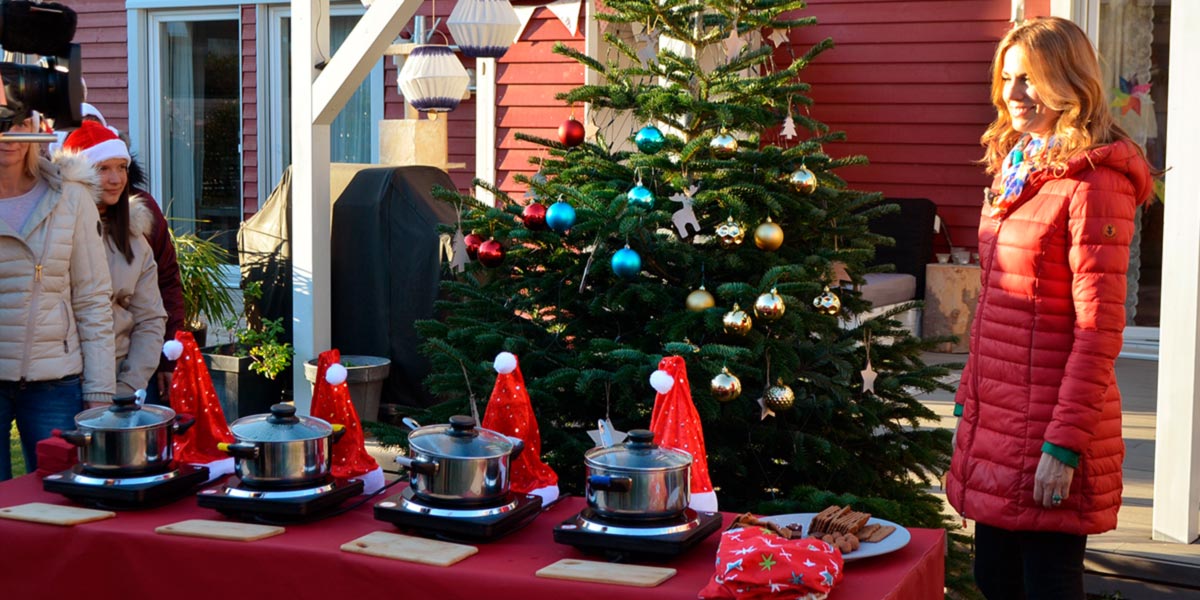 |
ZDFinfo, 12.55 p.m.
A colossus of steel and concrete, higher than Cologne Cathedral. The Hochmosel Bridge is Germany's largest bridge construction project: 1.7 kilometres long and 160 metres high. For Ernst Loosen, the Hochmoselbrücke is simply an abomination. The vintner is the head of a large winery that sells its products on the international market as far away as America and Asia. Not only does the bridge disfigure the most beautiful section of the Middle Moselle, but the routing of the new federal road is also a big problem for the winegrowers all around. The asphalted surfaces on the ridges of the mountains permanently disrupt the water balance of the vineyards.
ANIXE, 8.05 a.m.
Kaltern on the lake in South Tyrol. This is where Italian "dolce vita" and South Tyrolean down-to-earthness meet and lend a very special charm to the region and its people. In the region, everything revolves around wine, the No. 1 export. Along the South Tyrolean Wine Road, numerous wineries await you, where you can learn everything about the different grape varieties and growing areas. And as everywhere, you are invited to taste the wines, amidst cosy Alpine romance or at the Kalterer Wine Festival, which takes place every year at the beginning of September.
3sat, 5.45 pm
Even in autumn there is still a lot of activity. All hands are needed. Also with the winegrowers like Kilian Franzen and Angelina Lenz on the Calmont on the Moselle, the steepest vineyard in Europe. For some years now, they have been starting the harvest earlier and earlier. Global warming makes it possible. It not only ensures that the fruit ripens earlier, but above all that new varieties of grape grow, the likes of which are actually only found in Italy or France.
arte, 19.40
3sat, 2.00 p.m.
Hot springs, gentle hills with olive groves and villages made of yellow tuff characterise southern Tuscany. Tamina Kallert travels through this cultural landscape between Siena and Grosseto. She immerses herself in the mysterious world of the Etruscans, the "Tusci", who gave Tuscany its name. She explores the "Serengeti of Tuscany", visits beautiful spas, strolls through the Renaissance town of Pienza and enjoys music and wine in Montepulciano.
hr television, 6.10 a.m.
When Leon Zijlstra and Jörn Andresen told of their dream to grow wine in the Stormarn district, the doubters said: too flat, too cold, not enough sun. But the studied viticulturist and the master gardener acquired 3.3 hectares of land and planted 7,000 vines. One of the largest wine-growing areas in Schleswig-Holstein was created in Bargteheide. That was in 2017. In autumn 2019, the grapes were to be harvested, wine pressed and bottled for the first time. The long-term observation over a year shows the difficulties the winegrowers and their vines have to deal with in the northern German climate and ends (hopefully) with the tasting of the wine.
hr television, 6.40 a.m.
After the Germans became a nation of cooks in the last decade, there is a new trend that builds on this passion for the home cooker: wine. Suddenly everyone is talking about grape varieties, growing regions and star winemakers. But what is a good wine? How and where is it made? Which wine goes with which food? And above all: what can or should a wine cost? One person who has the answers is Stuart Pigott. The British-born wine expert has been travelling the wine world for more than three decades, especially in Germany's 13 wine-growing regions. In this country, Pigott is considered by many to be the most important wine journalist and "the" key witness of the "German wine miracle" since the turn of the millennium. The film accompanies him across Germany, from the Moselle terraces to Weinfranken, from famous top wineries to small garage winegrowers - always on the lookout for good drops at the best price-performance ratio. Because Pigott says: "good wine doesn't have to be expensive at all and especially in Germany there is now top quality even at a small price".
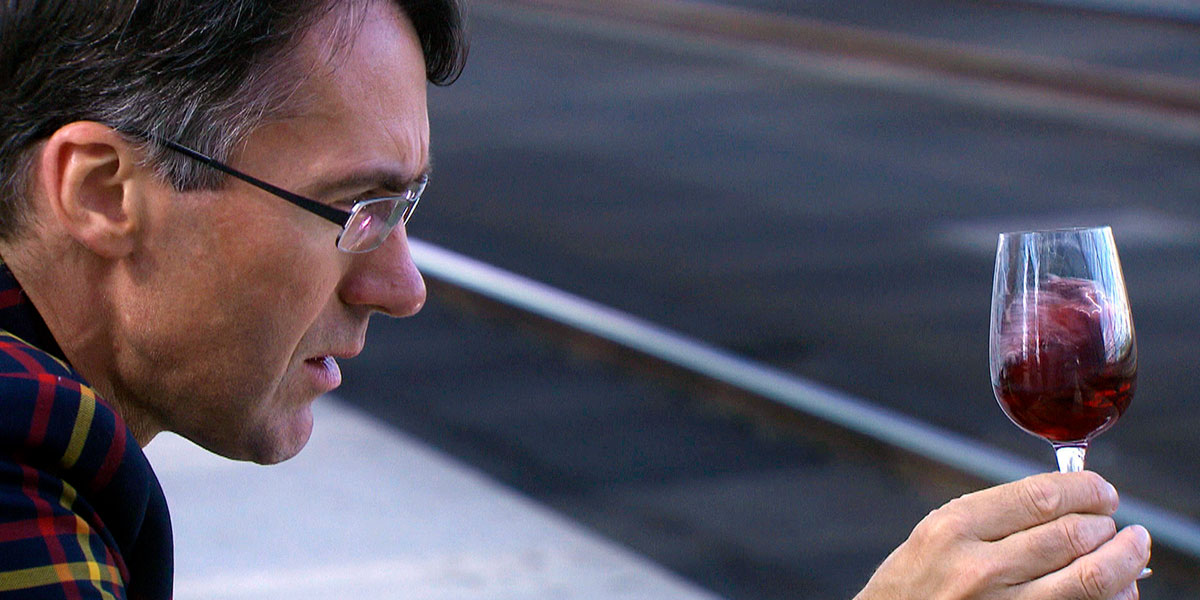 |
Bavarian Television, 11.10 a.m.
A steam train takes us to the Crete Sienese, Italy's wine cellar. From here come Chianti and Montepulciano and such fine wines as Brunello di Montalcino.
NDR Television, 8.15 p.m.
Many people like to treat themselves to a special bottle at the holidays. Real champagne is expensive, but now supermarkets and discounters also offer the French fine sparkling wine at comparatively low prices. But is the quality good? Or is it better to buy a classic sparkling wine for the same money? "Markt" wants to know!
ARD-alpha, 9.45 a.m.
Global climate change and its consequences are currently of great concern to people. On the one hand, the 15-minute programme deals with the basics of climatic processes: How do meteorologists and weather observers determine the climate with average weather values over at least 30 years? On the other hand, examples from Chiemgau show that the climate has been changing for a long time: From the "Ice Age at Lake Chiemsee" 10,000 years ago to the current successful attempts to grow wine in Chiemgau again. Last but not least, there is the question of what man, today more than ever before a contributor to climate change, can do to protect the climate.
3sat, 10.05 a.m.
The gold of today in New Zealand is wine, as winemaker Nick Mills tells us. Pinot Noir is the most famous grape variety of the southernmost of all vineyards, which has gained international recognition. Just as ships full of hopeful gold miners used to come to New Zealand, today they set off in the opposite direction, laden with wine.
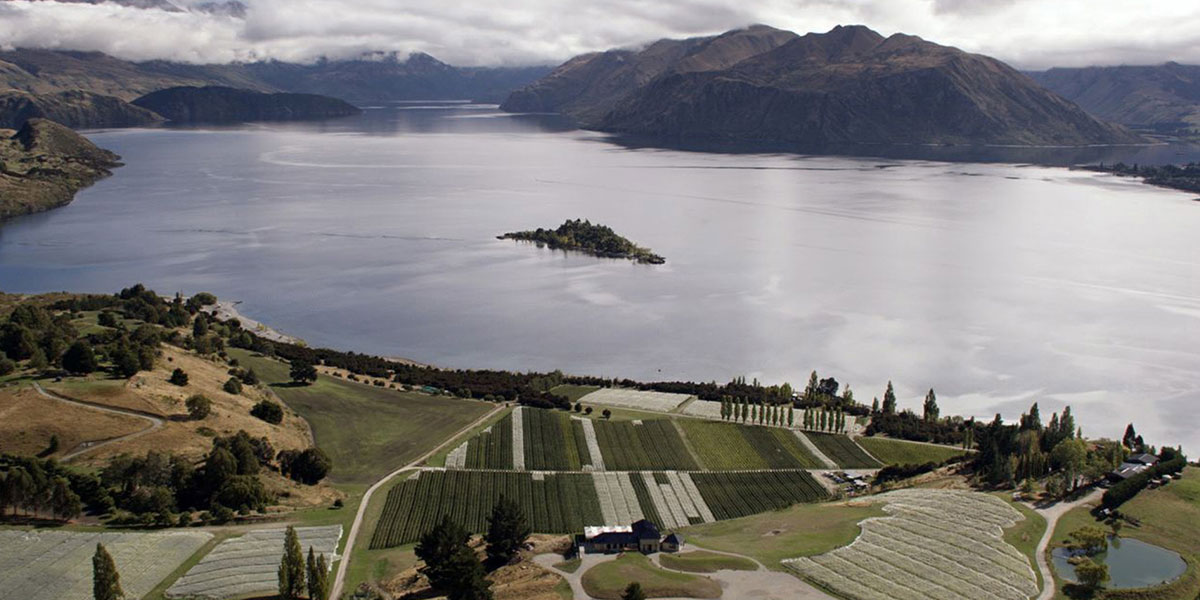 |
SWR Television, 3.15 p.m.
Six countrywomen from the TV series "Lecker aufs Land" celebrate a big Christmas reunion. Winemaker Christine Huff from Rheinhessen, potato farmer Michaela Frick from Linzgau, organic vegetable farmer Helga Decker from Baden, farmer Bianka Güldenberg from Upper Swabia and sheep farmer and winner Ingrid Jauernik from the Hohenlohe region meet at Ulla Bernhard-Räder's stylish vineyard in Rhineland-Palatinate. Each of the countrywomen has a recipe for the joint three-course menu. Even though none of the dishes are rated - for the festive table they serve only the best savoury and sweet dishes with ingredients from their own farm. In Ulla's kitchen, they prepare the big feast together and enjoy being together. Around the table, they reminisce about their Christmases as children, talk about country customs and their family rituals.
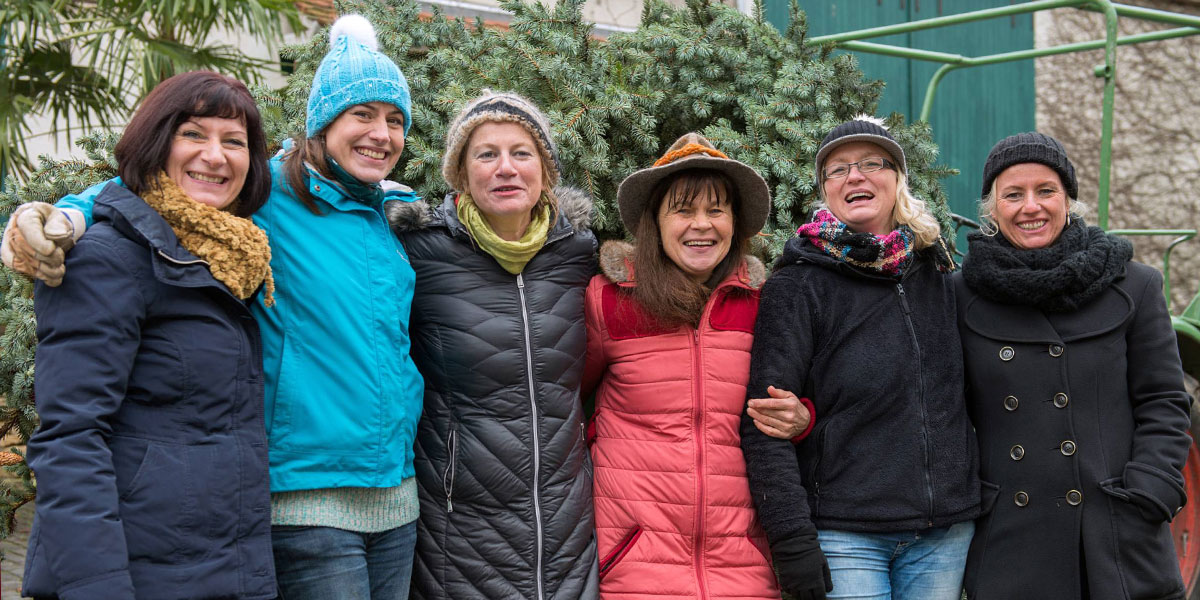 |
SWR Television, 3.15 p.m.
The six countrywomen from the successful SWR summer season "Lecker aufs Land" celebrate a Christmas reunion at the winery of Beate Vollmayer, the 2015 winner. The wine farmer from the Hegau region invites her fellow contestants to conjure up a Christmas menu together - with ingredients from the farms and her own family recipes. They include Anja Frey, a dairy farmer from the Swabian Forest, Isabella Stewart, a farmer from the Palatinate, Silke Fuchsen, a cheese maker from the Saargau, Kirsten Hellenthal, a goat farmer from the Swabian Alb and Ursula Baßler, a master distiller from the northern Black Forest. The six of them eat the festive menu together and enjoy being together. Around the table, they reminisce about their Christmases as children, talk about customs in the countryside and their family rituals.
SWR Television, 8.15 p.m.
Sensual marzipan, steaming mulled wine, a hearty Christmas goose and a red blossoming poinsettia. The Christmas season would simply not be complete without these rituals and delicacies. The SWR documentary "Finally Christmas!" takes a look behind the scenes where these things are created long before 24 December so that they are ready for Christmas. "Plusminus" presenter Alev Seker and ARD weather expert Sven Plöger look over the shoulders of manufacturers of such Christmas products. People who live from Christmas. It starts in the middle of the year: almonds for marzipan or grapes for mulled wine are natural products from agriculture and are approaching the peak of their ripeness. The poinsettia is potted. The Christmas goose feeds its way through the summer meadows. The shopping paradise is planning its Christmas campaign. Many of these businesses rely on the Christmas business or depend on it for their livelihood. How do Spanish almonds get into the marzipan of the chocolatier Gmeiner? How do the winegrowers Andres make one of the most highly decorated mulled wines in Germany?
ARD, 9.30 a.m.
"Die Sendung mit der Maus" uncovers the secrets of a very special farmer: For the Mouse Team, the Reis family opens the door to their world and shows how the ancient technique of wine-growing works. Here the farmer is called "vintner", and what grows is not the grape plant but the vine. The Maus team followed the work in the vineyard for a whole year until the first grape juice was bottled. All parts of the factual story series can now be seen for the first time in a special edition of the "Sendung mit der Maus". Here, in the Moselle valley, the vineyards are particularly steep. To tend the grapes, Achim Reis and his family have to climb high and work hard all year round. Even in winter, when their hometown of Briedel is still covered in snow and ice, the plants need care. They are pruned, every single one of them. Only then will they be able to harvest many grapes in autumn. Winemaker Achim has to plough well in spring. He does this with a so-called cultivator - and shows that you can even "surf" on such a device. In summer, the first small grapes are finally visible. But Achim does not rest on his laurels during the holiday season: now a helicopter even soars over the Moselle valley. Because no diseases should spread on the plants. Especially in autumn, the weather is always in the spotlight: how long can the grapes hang on? When the time comes, the winegrower and his helpers really start sweating again. But soon they can extract juice from the grapes. They also fill the first bottles now.
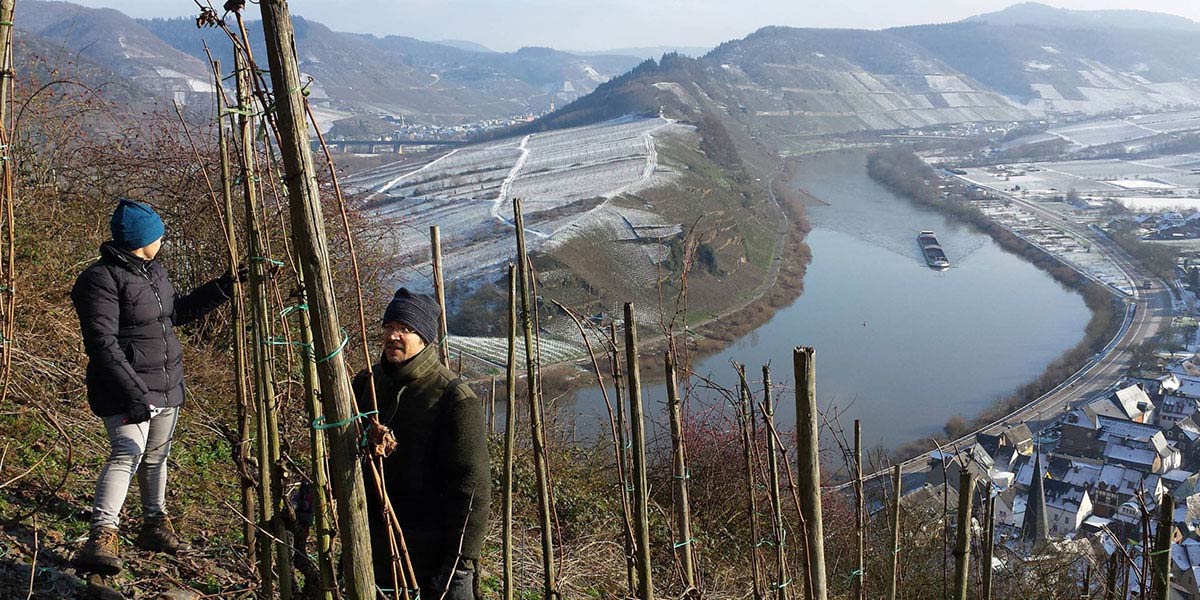 |
ARD-alpha, 10.32 p.m.
Some of the best Israeli winegrowers grow wine in the Elah Valley. One of them is Shuki Yashuv. He presses award-winning kosher wine. Shuki himself is an atheist, but many of his friends are believers, and he didn't want to drink his wine alone. When tasting his own wine, he is not allowed to touch the barrels, his Orthodox believer helper Yeshaya does that.
NDR Television, 6.15 p.m.
The Saxon Wine Route winds its way through the most beautiful sections of the Elbe Valley, past romantic villages, castles and historic towns such as Meissen, Radebeul and Pirna. The climate is almost like that in Italy. This is how the grapes for the best white wines can thrive. The "Hanseblick" is a guest of the Saxon winegrowers. Volunteers even come from Hamburg for the grape harvest. Presenter Sibylle Rothe helps out and even makes a cuvée, a blend of wines, under supervision. Every vineyard has its own speciality. At Gut Schloss Proschwitz it is the Goldriesling, a Saxon rarity. At Karl Friedrich Aust's vineyard, the vines thrive on the top site Goldener Wagen with a beautiful view of the Elbe valley. And amateur vintner Wolfgang Winn has his vineyard in an old sandstone quarry. The best way to discover the old cultural landscape is on hiking trails through the vineyards. Detours lead to Moritzburg Castle with its inland lighthouse and the stories about wine lover August the Strong and his drinking sessions. In the old bishop's town of Meissen, a mysterious pastry is made, as fragile as porcelain: the Meissen Fummel. It once served as an alcohol test, because only sober messengers could transport it in such a way that it remained intact.
NDR Television, 5.15 a.m.
arte, 6.40 p.m.
Zu Tisch in... visits our European neighbours - farmers, winegrowers, chefs, housewives - and tracks down their culinary treasures.
hr television, 10.35 a.m.
The Siebengebirge fascinates with superlatives: mythological home of the Siegfried dragon, Germany's oldest nature reserve with the most climbed mountain in Europe, northernmost vineyard within the cultivation belt, meeting place of world politics, origin of "Rhine Romanticism", Belle Etage of the Rhineland, "Eighth Wonder of the World". An astonishing collection of volcanic cones and hilltops can be found in a confined space of only fifty square kilometres.
3sat, 11.20 a.m.
It seems like a child's play: lawyer Sarah is supposed to go to the countryside to hand winemaker Peter the notice to quit his farm. But everything turns out differently than expected. Peter's foster father has died, and his biological son now claims the entire inheritance for himself. But Peter is not scared away that easily. He knows that there was a will in which he was designated as the heir to the estate. Lawyer Sarah Stein has her life firmly in hand and a clear goal in mind for her career: to become a partner in the renowned Frankfurt law firm she works for. The latest case her boss entrusts her with, however, seems more like a beginner's job: the elderly foster father of Peter Jahn, a winegrower, has died. Since there seems to be no will, the biological son Siggi, as sole heir, lays all claims to the family vineyard. And since Peter has not responded to any lawyer's letter, Sarah is now supposed to hand him the notice in person. The situation seems as clear as daylight and Sarah prepares for a short visit to the provinces. But things don't work out so simply. Peter knows very well that his foster father had intended him to be the heir to the estate. Obviously, the jealous Siggi has made the will disappear. If Siggi has his way, the ancient vineyards will make way for a noble wellness hotel.
arte, 3.40 a.m.
Since the 11th century, man has capitalised on this area by cultivating wine, olives as well as citrus fruits and other crops. At the same time, viticulture also began there. The terraced location by the sea with the iodine-rich air and the optimal sun exposure give the wine its character and the landscape its special charm. The work in the vineyards has remained largely unchanged in the Cinque Terre. On the steep slopes, the use of machines is unthinkable. For this reason, very little wine is now grown on the terraces of the Cinque Terre. The difficult access to the vineyards and the economic development of the 1960s accelerated the move away from terraced cultivation. The area lost more and more inhabitants. But today, this landscape, which is a UNESCO World Heritage Site, is enjoying increasing popularity. Some winegrowers, however, are not deterred from continuing to cultivate this magnificent cultural landscape. They practise, as they say locally, "heroic viticulture".
hr television, 6.35 a.m.
The gourmet tour first leads to the Rhine: to the largest Rhine island, the Mariannenaue. Wine has been grown here for hundreds of years - a light, sparkling Chardonnay. The wild boars also appreciate the taste of the grapes - and that's why many of them go into the sausage. During a romantic picnic on the island, winemaker Stefan Lergenmüller tastes sausage and wine with his friends. Afterwards, there is an exclusive tour of the huge cellars of Reinhardshausen Castle. The tour continues to Rüdesheim. After the grape harvest, the Rheingau has quietened down a bit. A nice opportunity to walk in the colourful vineyards and have a good meal afterwards. Breuer's Rüdesheim Castle serves duck stuffed with dates and figs - based on a recipe by Hildegard von Bingen - as well as a dessert by Grandma Dina, with fruit and a delicious sour cream.
arte, 12.05 p.m.
Champagne has long had serious competition in France: the French Crémant. Almost 80 million bottles of it are produced every year. Alsace, in particular, is producing ever better sparkling wines. As long as noble grape varieties are used, many crémants from Alsace can compete with champagnes in terms of taste. One of the best sommeliers in the world knows this - Serge Dubs. The master of his trade has been assessing wines, champagnes and crémants for decades. He knows the methods and idiosyncrasies of the winegrowers like no other.
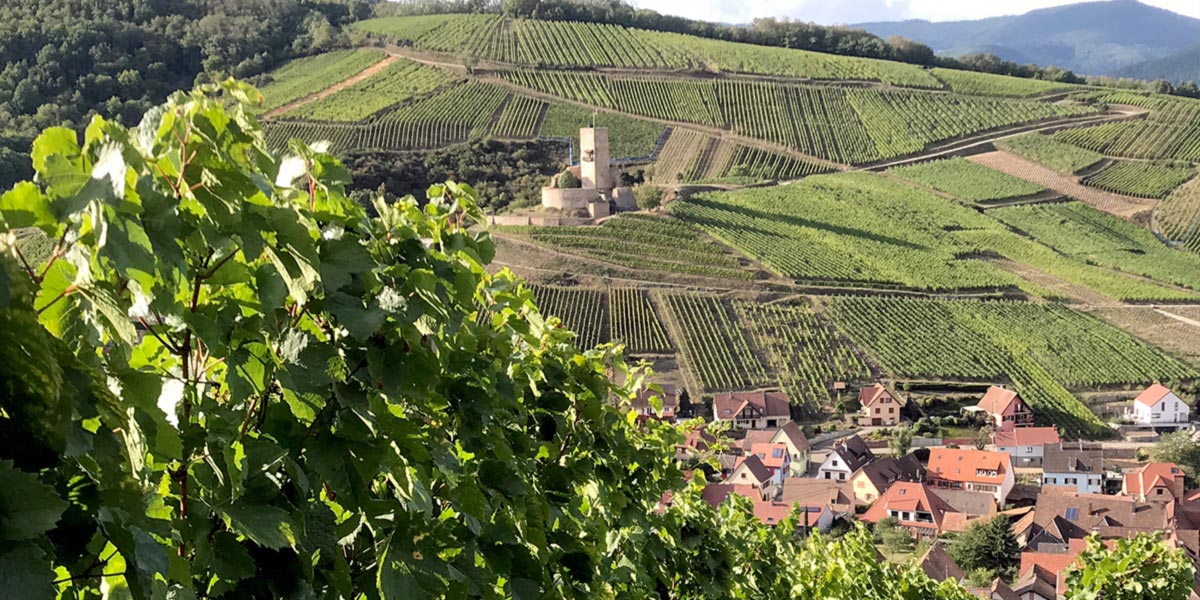 |